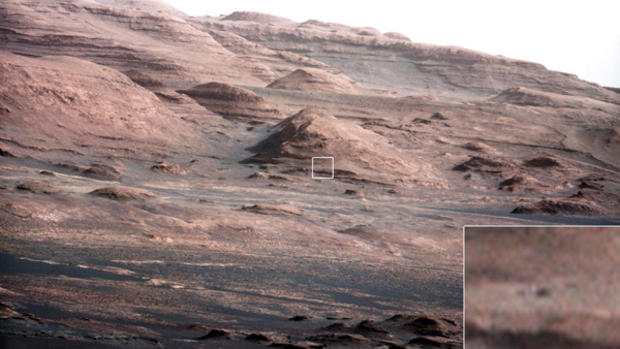Dinosaur-killing asteroid might have sent life to Mars, study shows
The colossal asteroid impact that killed off the dinosaurs may have sent the seeds of life to other planets and moons, according to a new study. Lifeforms may have even hitched a ride to Mars along one of the 360,000 large rocks that have made their way from the Earth to the red planet after asteroid impacts.
"I'd be surprised if life hasn't gotten to Mars," lead researcher Rachel Worth told BBC News.
It's possible because "material from the surface of a planet can be effected into space by a large impact and could carry primitive lifeforms with it,” the authors wrote in the research article, published Dec. 5 in Astrobiology.
They were specifically looking into where material from Earth and Mars ends up after an impact, and the ejected rocks serve as seeds of life when they land.
To figure it out, they created a computer simulation of the most massive ejections, such as the dinosaur-killing Chicxulub impact, that occurred during a 10-million-year time frame.
The study turned up evidence that rocks capable of carrying life that were ejected from the Earth and Mars have ended up on every terrestrial planet in the solar system, as well as Jupiter, and that material was likely transferred between Earth and Saturn.
One of those moons of Jupiter, Europa, features a liquid ocean covered by an icy layer. Worth’s team estimates that six rocks made it to Europe.
"Even using conservative, realistic estimates... it's still possible that organisms could be swimming around out there in the oceans of Europa," she told the BBC.
Does this mean alien life on the terrestrial planets or the moons of Saturn and Jupiter has roots on Earth? There’s no way of knowing, until life is actually discovered on these planetary neighbors – but it’s certainly possible.
“Any life found there cannot be assumed to be of independent origin,” they wrote.
There’s also the possibility that life traveled along the opposite course.
"Billions have fallen on Earth from Mars since the dawn of our planetary system,” said Worth. “It is even possible that life on Earth originated on Mars."
